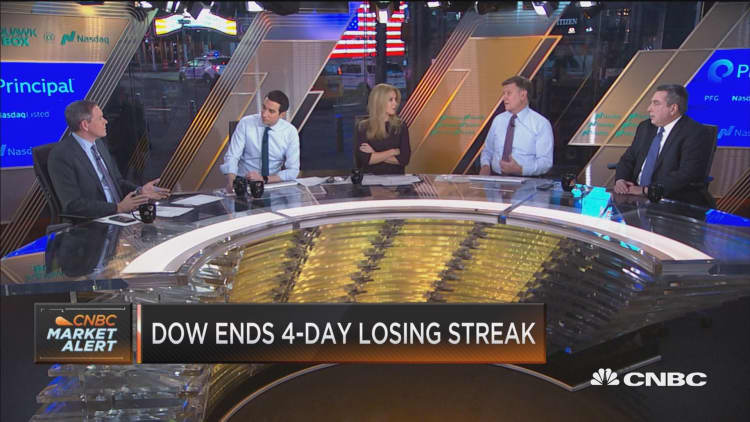
Apple shares fell in Tuesday trading, a day after President Donald Trump suggested the U.S. could place a 10 percent tariff on iPhones and laptops made in China.
Trump told The Wall Street Journal that "people could stand" that tariff rate "very easily."
Apple shares, which are already down 20 percent this month, close 0.2 percent lower in trading Tuesday.
Trump also said it is "highly unlikely" he would delay an increase in overall tariffs at the beginning of next year to 25 percent from 10 percent. Trump is scheduled to meet with Chinese President Xi Jinping in three days at the G-20 summit.
Apple's products are exempt from the tariffs, but that could change when Trump adds another $267 billion worth of tariffs on Chinese goods.
Bernstein analyst Toni Sacconaghi broke down Apple's revenue, saying on CNBC's "Squawk Box" that "25 percent of Apple's revenue, call it $50 billion, would be subject to a 10 or 25 percent tariff."
If Trump continues to raise tariffs on Chinese goods, Sacconaghi said, the biggest question is "how is China going to respond?"
"Could they try to disrupt Apple's supply chain in some way? Could they not authorize new phones for sale in the country? There are many things that China could do and that could ultimately be even more devastating," Sacconaghi said.
Elsewhere on Tuesday, RBC Capital Markets lowered its Apple price target to $235 a share, saying there are "sustained datapoints around soft iPhone demand from supply-chain and others."
"While AAPL stock has substantially corrected (down 21% since the company reported vs. S&P500 down 2%), we think investors will wait for datapoints/noise level to stabilize before getting more positive on the name," RBC's Amit Daryanani said in a note to investors.

The stock has fallen more than 25 percent since hitting its 52-week high at the beginning of October. Additionally, Apple is only a few months removed from when it surpassed $1 trillion in market capitalization.
Apple is now on the cusp of losing its crown as the largest U.S. company by market value. Microsoft, worth $817.3 billion at Monday's close, was set to overtake the iPhone maker at the open on Tuesday.


